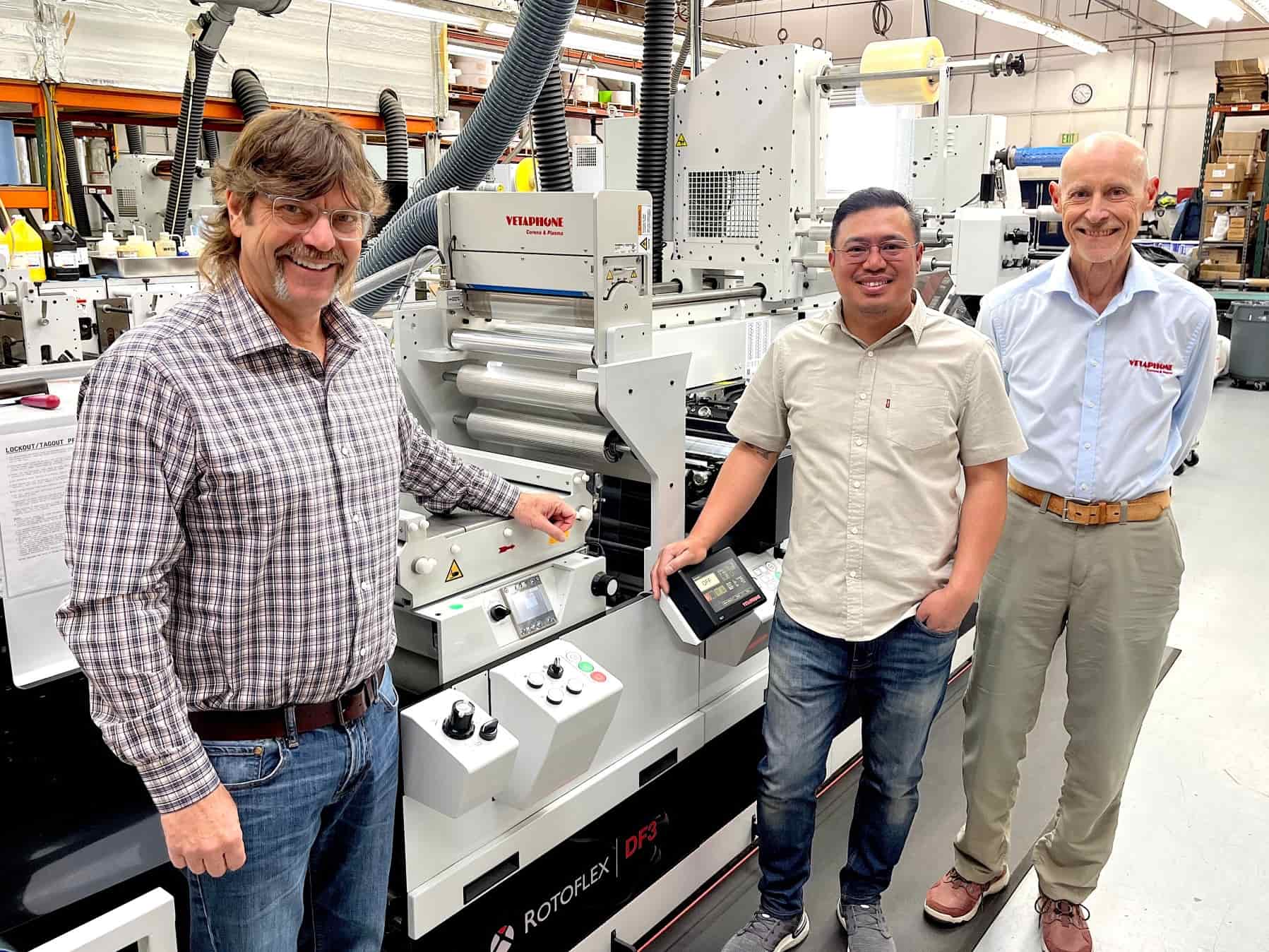According to Robert Parker, CEO and owner of San Diego based Label King, having Vetaphone corona treaters on his flexo presses and finishing line gives him additional production capacity. “We save around $10,000 a year on varnish on our Mark Andy P5 press by having Vetaphone corona and it has given us a very short ROI on our Rotoflex DF3 line because it effectively adds an extra print station,” he explained.
Parker founded the company back in 2002 having sold packaging for 11 years previously and studied flexo at a local college to fully understand the process. “I always wanted my own business but needed to find a niche that wasn’t being served – it turned out to be labels,” he added, and set up with a used Webtron 650, an experienced press operator and a large stack of dies acquired from a label company liquidation.
Beginning with supplying thermal labels as a trade house, and still predominantly trade today, Label King expanded with two additional Webtrons and enlarged premises until moving into the present 9,300 sq ft location on Distribution Avenue in 2012. By this stage the company had acquired a 10” Mark Andy 2200 8-color press to which it has since added a Mark Andy P5 flexo line with 13” web width and 8-color capability, as well as the Rotoflex DF3 finishing line with two flexo print stations.
The association with Vetaphone dates back to 2021 when after long research into the digital print options, Label King chose and installed a Domino inkjet press. “After carrying out extensive trials, we decided we preferred inkjet to toner technology because of the greater ink vibrancy, and the Domino was by far the easiest to set up and run,” he said. It also came with a highly recommended Vetaphone corona treater, the first in Label King’s history.
David Sommay, Production Manager takes up the story: “From the experience we had with Vetaphone on the Domino, it was a simple decision to specify the same on the Rotoflex that we installed last year, and for consistency’s sake we have now standardized our Mark Andy P5 press with Vetaphone corona. We like their ease of use and maintenance and the fact that they have excellent parts and service support in the US. Around 70% of our substrate is now BOPP film, so surface treatment is important – but even on paper stocks, it makes a difference, and we have no need to buy expensive pre-coated paper now.”
Robert Parker believes there is still plenty of room for growth in the Southern California label market and that much of the consolidation that the market is witnessing plays into his hands. “We are well equipped with the latest technology, have a highly skilled workforce, and have real-time production flexibility that allows us to accommodate last minute orders and job changes,” he commented.
Much of the company’s success is down to shrewd planning and investment. During the period when substrate supply was affected by the pandemic, Parker bought ahead to secure the materials that would allow the company to meet its deadline commitments on future business. It required additional warehouse space, but has proved invaluable, just as did the recruitment of an experienced graphics specialist prior to installing the Domino.
“Being pro-active gives us an edge over the competition,” he said, stating that the company’s business is still 60% trade, which mitigates against any conflicting interests. “If you do your homework and invest wisely you give yourself the best chance of succeeding. In my view, Mark Andy and Vetaphone are the Cadillacs of this market!” he concluded.
Commenting for Vetaphone, Rod Ambrose who represents the Danish manufacturer on the West Coast said: “It’s always good to receive a glowing testimonial from a customer and we are pleased to hear that our corona treaters are providing Label King with consistently high-quality surface treatment – but to be told that they also increase production capacity by effectively adding an extra print station and reduce substrate cost by removing the need for pre-coated paper is a real bonus!”

